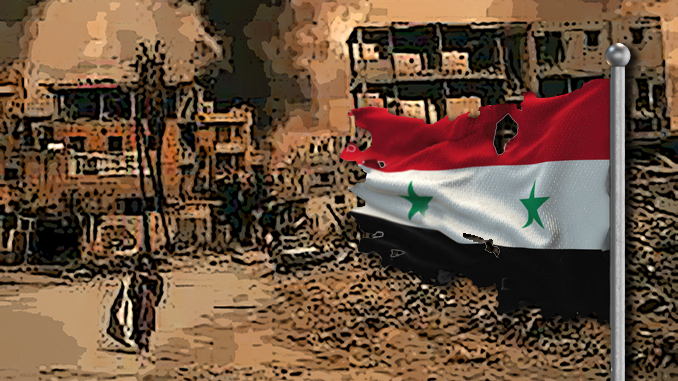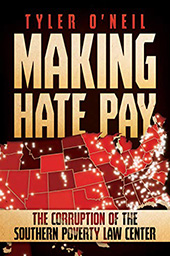
By Philip Giraldi
In Washington everything changes but everything remains the same. The appearance of coronavirus led to immediate consideration by Congress and the media of basic reform of America’s corrupt and inefficient for-profit healthcare model, but that logical step died when Big Pharma bought up the politicians and threatened to withdraw advertising from television and newspapers. Likewise, the turmoil currently taking place in the United States over the issue of race, which might lead to real positive change in terms of how America’s increasingly militarized police forces interact with the communities they are supposed to protect, is unlikely to go anywhere, as few politicians will want to appear to be against law and order in an election year.
 The policing debate’s failure to generate many reasonable proposals is particularly vexing, as it might reasonably have led to consideration of why the United States has become the world’s most criminalized country, with more arrests and imprisonments than any other nation. It might also have made some wonder why it is that the media and politicians are expressing concern over the place of blacks in the criminal justice system while not worrying at all about the aggressive foreign and security policy that has killed several million foreigners directly or indirectly in the past 20 years.
The policing debate’s failure to generate many reasonable proposals is particularly vexing, as it might reasonably have led to consideration of why the United States has become the world’s most criminalized country, with more arrests and imprisonments than any other nation. It might also have made some wonder why it is that the media and politicians are expressing concern over the place of blacks in the criminal justice system while not worrying at all about the aggressive foreign and security policy that has killed several million foreigners directly or indirectly in the past 20 years.
That discussion of policing might have led to some examination of the fear that has been pervasive since 9/11, leading the United States to intervene militarily in a number of nations. Those interventions have been brutal and have included plenty of war crimes by the American military, leading one to suspect that the use of force as a first alternative overseas just might have led to a greater use of violence by the authorities inside the United States.
The most recent outrage by the United States Department of State involves one of the quadriga of states that are always fair game when it is time to punish someone. They are Russia, China, Iran and Syria. In this case, on June 17, new sanctions against Syria and its government were initiated. U.S. Ambassador to the United Nations Kelly Craft informed the Security Council that the Trump administration would implement the measures to “prevent the Assad regime from securing a military victory. Our aim is to deprive the Assad regime of the revenue and the support it has used to commit the large-scale atrocities and human rights violations that prevent a political resolution and severely diminish the prospects for peace.”
Craft did not mention that the United States maintains an illegal military presence in Syria and has never been interested in peace. It has also supported the al Qaeda-linked terrorist groups that have been warring against Syria’s government while the White House has also enabled the nearly daily air attacks carried out by Israel against targets in that country, killing hundreds of local soldiers and civilians.
The most recent sanctions were imposed through the Caesar Syria Civilian Protection Act, signed by President Donald Trump in December with the objective of stopping “bad actors who continue to aid and finance the Assad regime’s atrocities against the Syrian people while simply enriching themselves.”
The United States has been seeking to destabilize Syria since the passage of the Syria Accountability Act in 2003, even though Damascus poses no threat whatsoever to American interests. The current sanctions come at a time when Syria is already struggling to rebuild after a nine-year civil war that destroyed much of the country’s infrastructure. U.S. sanctions are making reconstruction efforts more difficult and are de facto largely punishing the Syrian people, with only minor impact on its government.
Existing U.S. sanctions on Syria have already frozen all government assets and have also targeted companies and even individuals. The new sanctions will give the White House and Treasury the power to apply so-called “secondary sanctions” to freeze the assets of any entity or even individual, regardless of nationality, for doing any business in Syria. The threat of secondary sanctions will have a major negative impact on Damascus’s remaining trading partners, to include Lebanon and Iran. Russia might also be impacted, as it is involved in Syrian reconstruction.
The United States and Israel clearly hope that punitive sanctions will force the starving Syrian people to rise up against the government, as some sought to do during the so-called Arab Spring in 2011. That means that a sanctions routine, much favored by the Trump administration, never succeeds in compelling rogue governments to behave better because, the way it works, it is always really about regime change no matter how it is packaged. In the case of Syria, and contrary to the claims made by Ambassador Craft at the United Nations, the Bashar al-Assad government has already won the

war in spite of U.S. and Turkish intervention on behalf of the insurgency that has been supported largely by terrorist groups. And the evidence for Syria’s having carried out “largescale atrocities and human rights violations” has mostly been manufactured by enemies of the government, to include the Hollywood and Washington think-tank favorite, the White Helmets.
Daniel Larison sums up the real impact of sanctions:
The U.S. increasingly relies on a coercive policy that does a terrible job of advancing American interests, but it excels at impoverishing and killing ordinary people in many countries around the world. Economic sanctions have been a favorite tool for politicians and policymakers to use against many governments in response to a range of undesirable activities, because it seems to offer a low-cost option that allows the U.S. to “do something.” The record clearly shows that they fail on their own terms, and they end up costing much more than their advocates will ever admit. It would be bad enough if this were simply a matter of repeating the same error over and over and never learning anything, but the consequences of sanctions have been devastating for millions and fatal for tens of thousands of people.
Larison might have written “fatal for millions of people” or even more. Sanctions on Iraq during the Bill Clinton administration reportedly killed half a million Iraqi children. At that time, Secretary of State Madeleine Albright told a television interviewer that the deaths were “worth it.” In fact, the deaths did not moderate Iraqi behavior one iota and Albright (a war criminal herself) is still running loose on her farm in Hillsboro, Va. while also appearing on television and radio. The United States has always been particularly good at meting out death and lesser punishment to select foreigners while also ignoring its own bad apples.
Philip Giraldi is a former CIA counter-terrorism specialist and military intelligence officer and a columnist and television commentator. He is also the executive director of the Council for the National Interest. His other articles appear on the website of “The Unz Review.”




